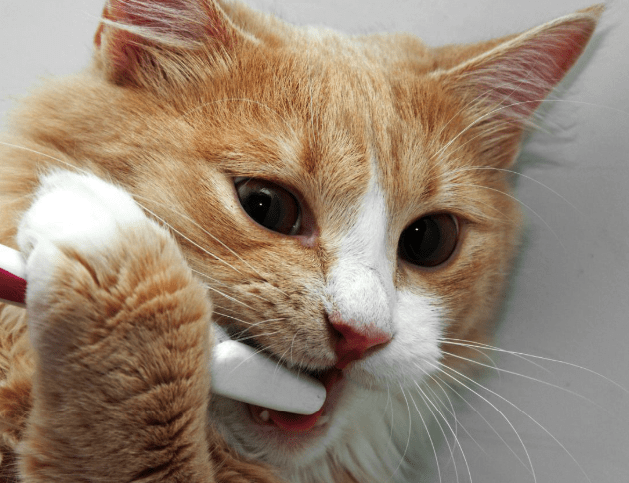0
Cat Grinding Teeth
Looking after cats is very much like looking out for our other family members. Seeing or hearing a cat grinding teeth is not quite a pretty sight or sound to see and hear. Most often than not we end up being surprised as to why they are doing so as well since it is more common in humans.
Did you know that teeth grinding in cats is called bruxism in a more formal perspective? Well, how about we find out and learn more about teeth grinding in cats!

If you previously thought that only humans do teeth grinding, well then why don’t we take this opportunity to learn that it also occurs in cats! And one way or another it could be a sign of pain for your cat. Actually, bruxism is said to be only a symptom of a much larger problem. Meaning, bruxism in itself is not the issue – but a far more different medical condition is at hand.
Contents
- What causes a cat grinding its teeth?
- Feline Odontoclastic Resorptive Lesions
- Malocclusion
- Extrusion
- Tooth fractures
- Periodontal disease
- Ulceration
- Problems with the Temporomandibular Joint
- Abdominal Pain
- Stress
- Food
- How to help your cat
-
- Round Up
-
What causes a cat grinding its teeth?
Feline Odontoclastic Resorptive Lesions
A bit scary sounding isn’t it? FORLs are enamel lesions in a cat’s teeth. Once they become visible to the naked eye, it means that it has advanced to having quite a lot of oral bacteria. It is very much like how cavities are in humans, meaning it is very painful for our cats too.
Malocclusion
This condition is also known as abnormal tooth alignment. This condition is more prevalent in what we call as brachycephalic breeds such as Persian and Siamese cats; due to their flat, long, and pointy facial features.
Extrusion
There are times when cats develop abnormally long fangs, this is a condition called extrusion. This results in an abnormal dentition in cats, making them grind their teeth.
Tooth fractures
Teeth of cats may become fractured if they bite something harder than their teeth can handle or they accidentally hit their head as they land. This usually results in trauma – a fractured upper canine tooth.
Periodontal disease
Periodontal disease or gingivitis, or for simpler terms, is also known as inflammatory gum disease. Just as the name suggests, it occurs when cat’s teeth become inflamed. Your cat may have bad breath as the disease develops.
Ulceration
These are open sores or lesions in your cat’s mouth area wherein the gums and the tongue are affected. Most often than not, this is an indication of a far more advanced medical condition such as pemphigus complex, uremic poisoning, systemic lupus erythematosus (SLE), calicivirus and such.
Problems with the Temporomandibular Joint
Albeit more common in humans, it is undoubtedly a cause for teeth grinding. The Temporomandibular Joint or the TMJ is the point where a cat’s jaw is attached to its skull, very much acting like a hinge. Problems with this joint cause terrible pain upon opening or closing the mouth. Your cat will have a hard time assuming the normal functions of its mouth.
Abdominal Pain
As we have said earlier, bruxism is an indication of a far more complex disease your cat may have. In this case, there is a possibility that your cat is experiencing abdominal pains due to issues with their livers and intestines.
Stress
Perhaps your cat is feeling quite anxious and stressed with its surroundings that’s why it can’t help but grind its teeth. Watch for possible triggers and avoid them as much as possible.
Food
Check what you feed your cats. If you had a sudden change in cat food, this might be what’s causing the problem. If your cat is already experiencing pain due to an inflamed tooth or gums, dry cat food may further aggravate the situation.
How to help your cat
The best thing to do is immediately set up an appointment with your veterinarian to have a proper diagnosis and be prescribed with the correct medications. We do not wish to prolong the agony that our cats maybe feeling.
If test results show that everything is quite normal, perhaps it has got something to do with your cat’s TMJ. In this case, there are cat chiropractors who specialize in this condition. A proper chiropractic therapy will help improve your cat’s condition.
Round Up
Overall, we can see that most causes of teeth grinding are dental related. With that, we must make sure to keep our cat’s dental hygiene maintained properly. Teeth grinding is not a situation that can be so easily brushed off, it is up to us to help our feline friends.
,
Leave a Reply:
,
About me – Rebecca Welters
Yes, I am that weird cat lady with 200 cats and live in the darkest corner of the city where no one dares to go! Joking! But I am a cat lover and have 2 Taby cats called Toby, he’s 8 years old and Dory, she’s 3 years old.


